Image
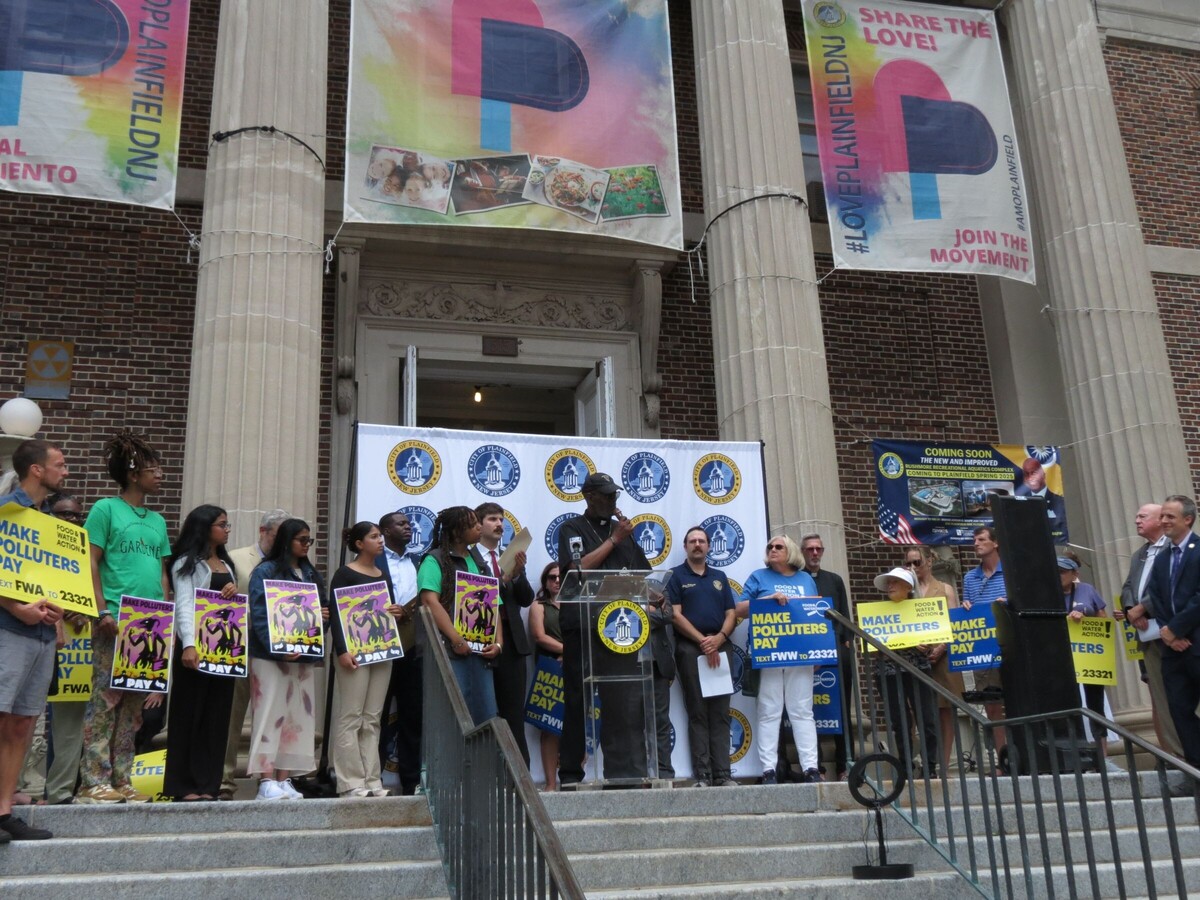

Plainfield, NJ — In the wake of deadly back-to-back storms in Plainfield, local officials and climate advocates gathered Tuesday afternoon outside City Hall to demand swift passage of the New Jersey Climate Superfund Act. The event featured Plainfield Mayor Adrian Mapp, State Senator John McKeon — the bill’s prime sponsor — and other local leaders calling on Governor Murphy and the legislature to hold Big Oil accountable for climate damages that have devastated New Jersey communities.
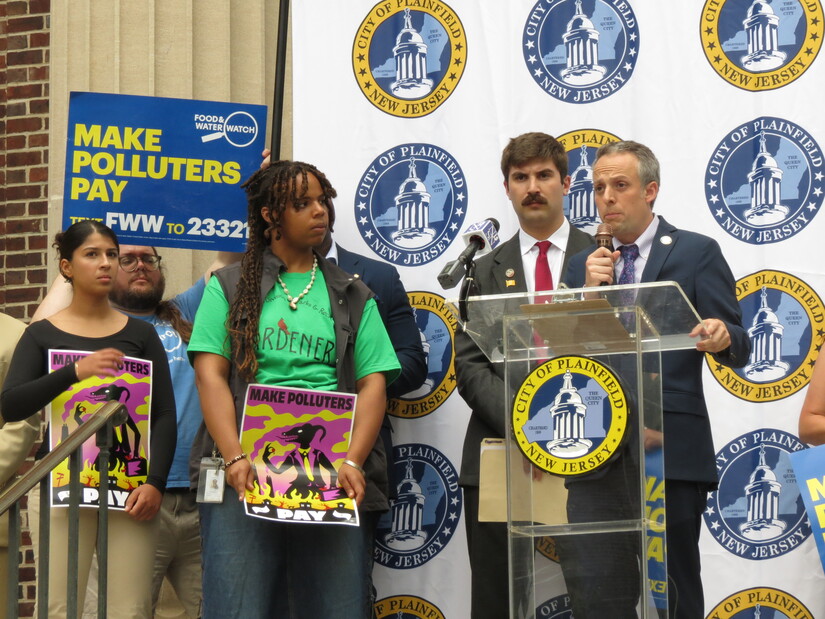
Speakers highlighted the urgent need for dedicated state funding to protect residents from worsening climate disasters, especially as federal support for climate resilience and disaster recovery continues to vanish. The Climate Superfund Act, which has already advanced through initial committees in both the Assembly and the Senate and now awaits final committee and floor votes, would make major fossil fuel companies pay their share for climate-related damages in New Jersey. Those funds would be used to rebuild infrastructure and develop projects across the state to make communities more resilient to extreme weather events. The legislation is modeled after similar laws in New York and Vermont.
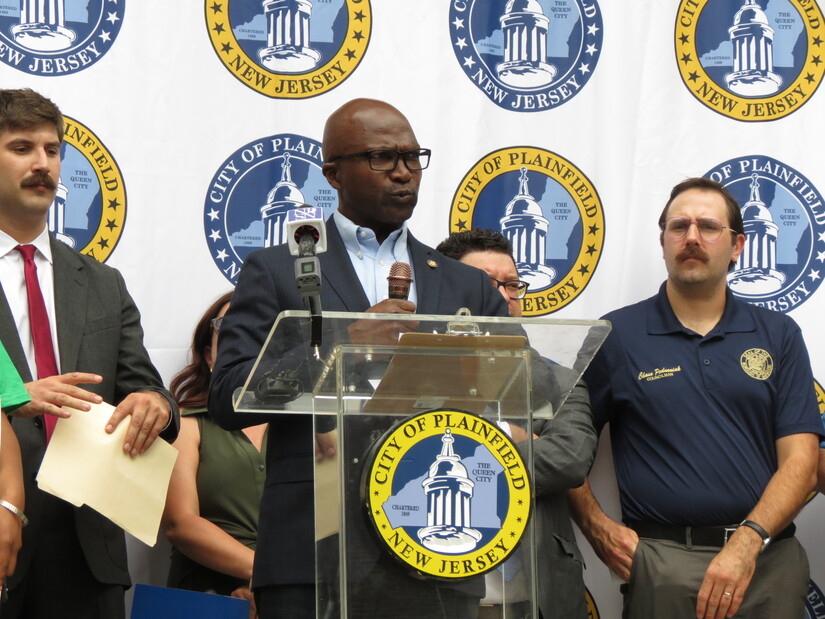
“We can no longer act surprised when climate change turns storms into disasters,” said Plainfield Mayor Adrian Mapp. “Let’s be clear about who is truly responsible: the fossil fuel industry has known for decades that their products cause climate change. They have known this all along. They chose to lie, they chose to lobby, while communities like ours paid the price in lives, property damage and rising costs. This cannot continue. That’s why I call on all of us to support the New Jersey Climate Superfund Act — which will ensure corporate polluters, not taxpayers, pay for the damage they have caused.”
“New Jerseyans are living through the impacts of the climate crisis in real time — deadly floods, extreme heat, and worsening storms,” said Matt Smith, New Jersey State Director at Food & Water Watch. “These disasters are not just acts of nature; they are the predictable consequences of decades of pollution and denial by fossil fuel companies. Communities like Plainfield should not be left holding the bag while Big Oil rakes in record profits. The legislature must act now to make polluters pay and protect the people of this state.”
“Communities across New Jersey are underwater, both literally and financially. The severe flooding we have recently experienced is not an isolated incident, but yet another example of a growing pattern of climate-related disasters that are increasing in frequency, level of destruction, and cost to residents of our state," said State Senator John McKeon. “Our local governments are already stretched thin responding to these disasters and rebuilding damaged infrastructure. We must work with them at the state level to prepare for the next big storms. We cannot continue to force our residents to foot these massive bills while the biggest polluters, who are largely responsible for these crises, get out of paying their fair share.”
“Climate change-induced extreme weather comes at an extreme cost — lives, property damage and so much more in Plainfield, in Piscataway and across New Jersey,” said State Senator and Environment Committee Chair Bob Smith. “We need more heroic efforts. Polluters that have profited from this chaos must bear the costs. The Climate Superfund Act does that, helps us build back stronger, to reduce damage in the future. We can't pass it fast enough.”
“The impacts of climate change are here. The consequences of polluters releasing carbon dioxide into our atmosphere can be seen here in Plainfield and around the state,” said Congresswoman Bonnie Watson Coleman. “From flooding in North Jersey, powerful thunderstorms in Central Jersey and tornadoes in South Jersey, we are seeing what happens when we allow polluters to write our environmental policy.”
“I stand with my neighbors and the elected officials here as we recover from the recent storms and flooding,” said State Assemblymember Linda Carter. “I am committed to securing the state resources that our communities need for these efforts – something that is particularly special right here for the city of Plainfield.”
“Extreme weather events are becoming more frequent and more destructive. Towns across New Jersey must invest significantly in infrastructure to build safer and more resilient communities,” said Springfield Committeeman Alex Keiser. “The Climate Superfund Act is a commonsense solution to help fund these urgently needed projects. It’s simple: the largest fossil fuel companies, whose emissions helped create this crisis, should contribute to the cost of protecting our communities. Taxpayers should not be left holding the bill.”
“This week, the State got a big reminder on just why this funding is so important,” said Garwood Mayor Jen Blumenstock. “Now more than ever, small towns like Garwood need these dedicated state funds so we can protect our residents from these extreme weather events. Without it, small towns simply will not be able to make the infrastructure changes that our residents deserve.”
“This is about putting people first. This is about justice for the harmed, the displaced, and the deceased. This is about a better future,” said Garwood Councilman Chase Padusniak. “Along with so many of my colleagues, I enjoin the New Jersey state legislature to pass the NJ Climate Superfund Act. We owe it to one another.”
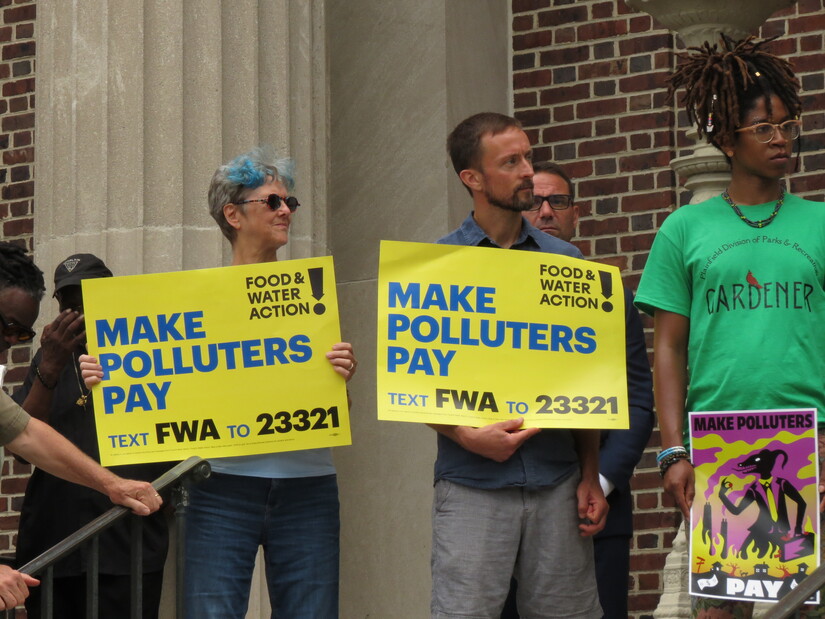
“Plainfield is grieving, families are burying loved ones, towns are holding mutual aid concerts to get by and our legislative leadership still hasn’t moved the Climate Superfund Act,” said Ben Dziobek, Executive Director of Climate Revolution Action Network. “How many more lives have to be lost? How many more towns need to be swallowed by storms before they act? New Jersey is in a deficit, our communities are drowning, and the corporations that caused this crisis haven’t paid a dime. If your concern is money — then tell me, what’s the price of a human life in your ledger?”
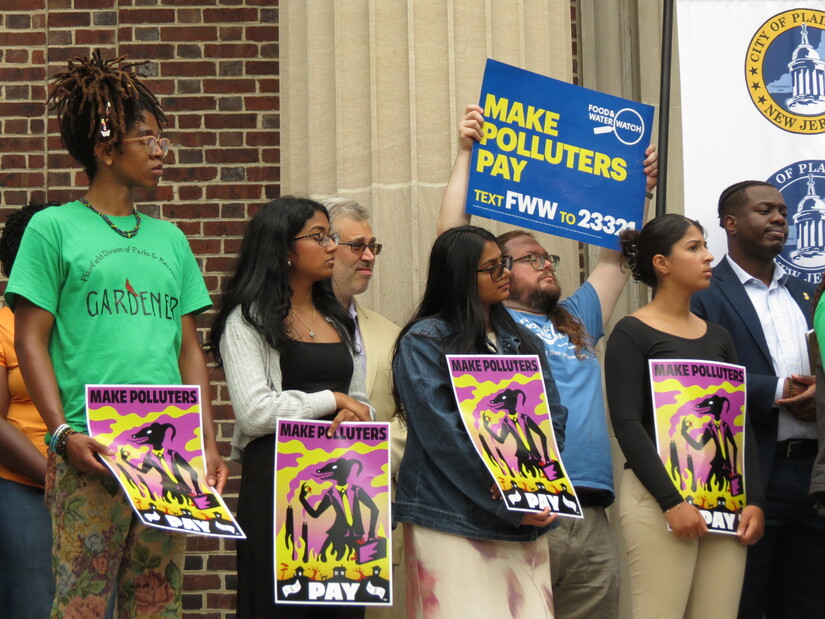
The July 14 flash floods that struck Plainfield killed two people — just days after another fatal storm in the same town. Advocates say these repeated climate-fueled disasters underscore the urgent need for proactive state-level funding for disaster recovery, protecting vulnerable communities and modernizing outdated infrastructure.